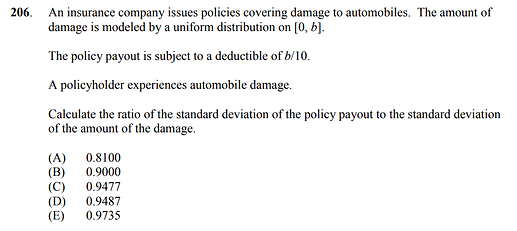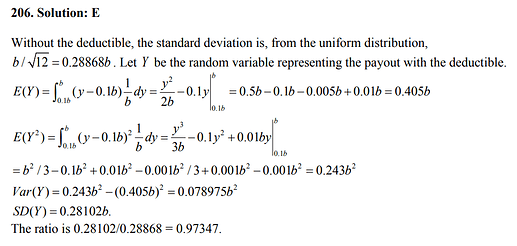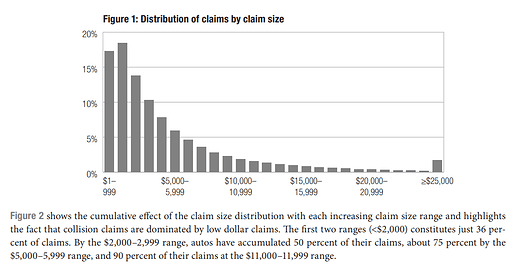Delayed reply, because I didn’t want to type this on a phone:
I technically disagree with it, but I think it ends up being right a lot of the time. Here’s why:
[Important note: I think it’s generally very difficult to predict which applicants are going to be good students/successful faculty. So I’m not actually very confident in my opinion about the attributes of successful candidates.]
Sticking to the accounting/finance/econ world (there’s a lot of overlap, so I’m basically thinking of the group of people who will end up studying some aspect of capital markets), the PhD program has 2 components:
- The coursework, more or less in the first two years.
This coursework is very quantitative and requires a good background in math and stats. The classes are more difficult than undergrad, obviously, but the structure is similar - you have exams and projects and milestones and you generally know the things that you need to do in order to successfully complete the class.
It doesn’t require a masters in econ or math, but those would be helpful. And it would certainly be good to have taken (and retained) multiple calculus courses, linear algebra, and probably other classes as well. Generally the first two years of the program, although students will probably take a couple of classes in years three and beyond.
- The dissertation stage, where students conduct their own independent research.
This stage is much less structured in terms of both time and material. You don’t necessarily have milestones, and you definitely don’t have someone making sure that you’re making progress on a day-to-day basis. If you have a good advisor, you have regular meetings set up to make sure that you’re moving towards a dissertation, but this might be an every other week or every month thing.
More important, there’s not an obvious cookbook recipe towards completing the dissertation. You need some degree of creativity to come up with a new research idea.
So with that as background, applicants are typically strong in one of two areas that (imo) correspond to these two stages of the program:
-
You have academically strong candidates who have taken the hard-core masters courses. These students often do very well in the coursework for the first two years. But they struggle in the dissertation stage, because they have no real world experience. (The typical applicant in this group went straight from undergrad to a masters program, then straight to applying to a PhD program.) So that means if they’re interested in studying something like investment banking activities, IPOs, sell-side analyst behavior, firms’ disclosures, tax rules, SEC enforcement, executive compensation, etc. then they’ve never had the exposure to those things in practice, and have no idea what’s actually interesting or unknown or weird about those areas. So it’s hard for them to identify something worth studying. On top of that, their lack of exposure to these practical areas often lead them to saying things that absolutely make no sense to people who do have experience. (For example, blindly asserting that sell-side analysts are entirely compensated based on the performance of their stock recommendations, and that those recommendations are based on theoretically-grounded discounted cash flow models, using CAPM to estimate a discount rate.)
-
You have candidates who did not take advanced classes, but instead worked for a while (as a debt or equity analyst, a consultant, an auditor, ectc.). These candidates are in the reverse situtation. They often struggle with the hard-core courses in the first two years, but conditional on surviving those courses are in a better position to complete their dissertation stage, for two reasons. One, like I mentioned before, is that they’re better able to identify interested problems/questions to research. The other is that they’re typically better suited to handle the unstructured nature of the dissertation stage - they’re less likely to need those weekly assignments and milestones. I think this group is likely to end up being better at teaching. But again, a lot of this is unsupported opinion of mine.
So going back to the original question, an undergrad in finance or accounting or whatever isn’t necessarily a red flag on its own. But those undergrad majors often point to people who don’t have the math/econ coursework to do well in the first two years of the program, which is obviously a red flag.
(I was clearly in the second group. I had virtually no advanced math background and was not at all prepared for the doctoral coursework. In fact, I had no idea what the PhD program involved - I thought it just taught you to be a teacher, and that a college professor seemed like a pretty great job. I probably shouldn’t have been admitted into the program at all.)


